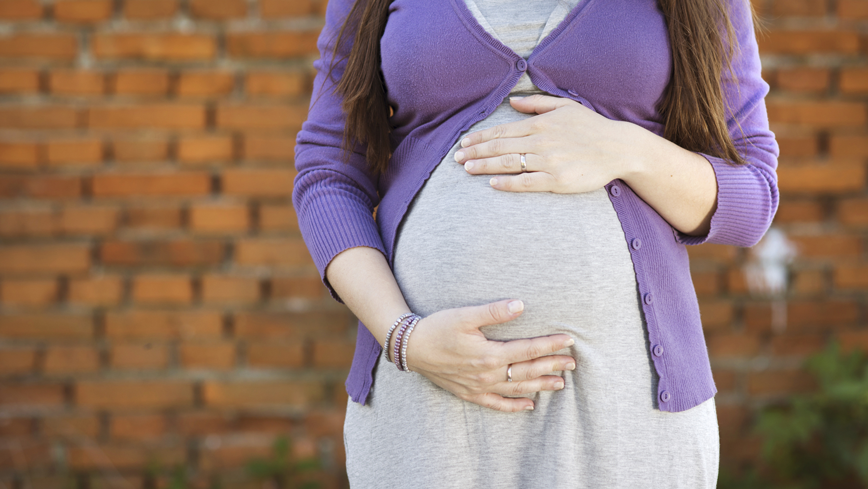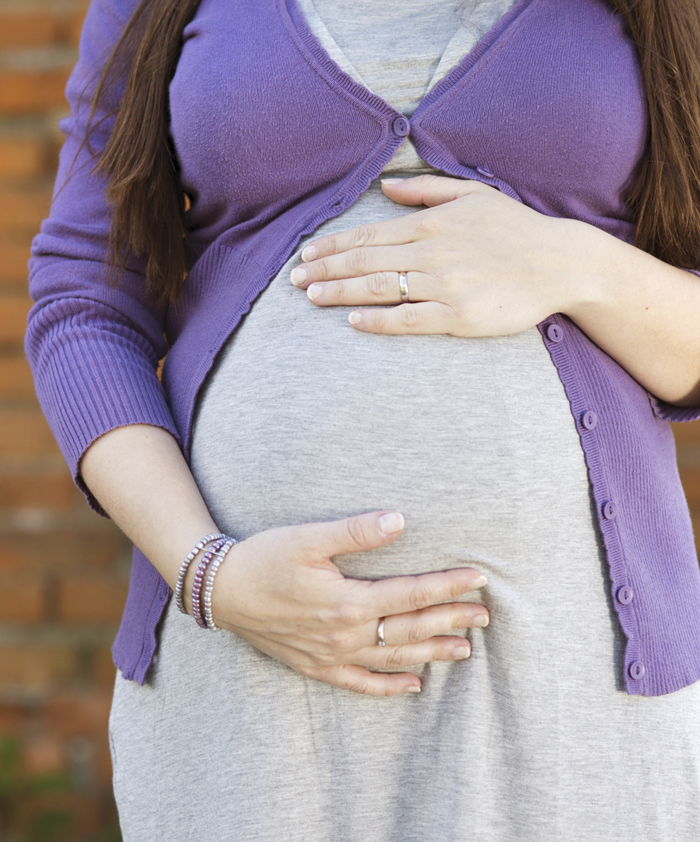Coping with trauma while pregnant
When I was four months along with my first child, my mother was diagnosed with a terminal illness. From her bedside, I watched her suffer an unimaginable amount of pain – much more than I thought one human could endure. She tried so hard to stay strong and survive a little longer, so she could meet her first grandchild. Sadly, within a month she was gone.
Devastation doesn’t even come close to what I felt. While death is a normal part of the life cycle, I couldn’t have imagined that I, along with my brother and sister, would be orphaned at such a young age (our father had passed away almost two years before). And being pregnant at the time made it even harder. I had to face the reality that my child would never get to meet my parents.
Grief is the natural reaction people have to any loss in their lives. Whether you have lost a loved one, are separating from your partner, or someone close to you has had a serious accident or been diagnosed with a serious illness, it can be tough to deal with – and even more so when you are pregnant. Grieving is a journey about coming to terms with what has happened and learning techniques for how to cope.
The loss of a loved one
Losing a loved one is a sad and emotional time, particularly when you are pregnant, as it forces you to deal with birth and death in a very short period of time. Your likely initial reaction is shock and your body naturally releases chemicals, including adrenaline, to help with thinking, alertness and dealing with pain. This increase in adrenalin can cause sleeplessness and difficulty sitting still and concentrating.
When the shock subsides, you are likely to experience a whole range of jumbled and conflicting emotions, ranging from sadness and guilt to anger and even betrayal, when you’re left asking yourself, ‘Why did this person leave me at this important time in my life?’. You may also feel a bit guilty that you are sad when, under normal circumstances, pregnancy should be a joyous time.
Brisbane psychologist Julie King says it’s important to accept the feelings you have and acknowledge that you are going through a difficult time. But if you are feeling so overwhelmed with grief that you don’t want to get out of bed, you need push yourself to get active and out of the house, she says. This will stimulate your mind and remind you that life does go on and, even though you’ve lost someone special, there still are beautiful things in life.
“Give yourself a break from the full intensity of your feelings, but don’t tell yourself you’re happy when you’re not,” Julie advises. Physical activity is great for helping you cope, as it stimulates your mind and helps you focus on other things. And experts say that deep breathing is a good relaxation strategy, too, so when you’re feeling particularly stressed or anxious, just take a few deep breaths and gently exhale.
Writing down your thoughts and feelings is another great way to help you cope with your grief, says Julie. If you have any unresolved issues with the person who has passed, or feel guilty that your final conversation was a bit negative, writing everything down can help you start to accept the situation and move past it. Also write down some of the positive memories you have of the person so you can pass them on to your child. “It’s really important for children to have a sense of history in terms of where they’ve come from and who they are like or not like, and of family traditions,” acknowledges Julie.
While grief can seem overwhelming at times, it’s important to give yourself some time out from it so you can focus on yourself and your pregnancy. A great way to do this and to bond with your unborn baby is to make time every day to sit down and put your hands on your belly. This will allow you to connect with your baby and remind you that you have something positive in your life, even if everything else seems the opposite.
A serious accident or illness
If someone close to you has been involved in a serious accident, or has been diagnosed with a serious illness, you may find yourself overcome with feelings of sadness, restlessness and fear at the prospect of that person passing away or being permanently injured, Julie says. You are faced with the ‘unknown’, and this uncertainty often leads to feelings of anxiety.
“If at any point during the person’s recovery time or time in hospital there is a period where there is a fear that the person is going to die, then that fits the definition of trauma,” Julie explains.
If a loved one is sick or injured, there can be a lot of work to be done (both physically and emotionally), so it is crucial to pace yourself – for your own health and your bub’s wellbeing. You should never be afraid to reach out and ask others for help. If you have to sit by someone’s bedside, try to listen to some relaxation music while doing so. Sit and hold your loved one’s hand, read to her out loud, talk to her about your favourite shared memories, or have conversations about the baby on the way. This would also be a good time to tell the person how much she means to you and to make peace with her.
Separating from your partner
Separating from your husband or partner at any time is tough, but it can be “a lot messier” when there’s a baby in the mix, Julie says. The realisation that your relationship has failed is a big one, and you may fear that your baby will miss out on having both parents as a constant in her life. Of course, whether this will be the case depends on many factors, including who did the leaving, whether the split was expected and whether it was by mutual agreement.
Julie says that separation is a definite type of distress, and you are likely to feel more anger in this situation than with other types of trauma. It can stir up a lot of unresolved issues either in the relationship, or in other areas of your life. You will be forced to deal with a huge range of emotions and possible complications resulting from a separation. If you shared a group of friends, it’s likely some may feel uncomfortable taking sides after the split, and some will find it challenging to remain friends to you both. You may also end up feeling lonely or isolated.
“It may also be harder for people to know how to support you,” Julie acknowledges, so don’t be afraid to call upon close friends and family members that you can trust to talk with about your feelings and to help you through.
There is also a sense of rejection and often betrayal associated with a separation, which can be expressed in destructive ways. Julie says that instead of focusing on who is to blame, though, it’s more helpful to remain calm and process your feelings. When it comes to your pregnancy, you may find yourself unprepared for awkward moments, too, such as when the midwife or doctor asks if your partner will be there for the birth. That is why it is important to think ahead whenever you can, and be emotionally ready to deal with different situations that may arise.
Separation during pregnancy may also have an impact on your attachment to your baby. If it was a messy break-up, try not to let this affect the way you feel about your child. For example, it’s important not to assume that the child will possess the negative traits of your former partner. You might need to make an effort in forming a positive bond with your baby and remember that the birth is something beautiful and special.
Also, prepare for the birth and organise who you will have as your support person both during labour and while settling into your new role as a mother. This will help alleviate some of the distress you may be feeling about being a single parent and allow you to feel more confident about your situation.
Looking ahead
After my mother’s passing, I remember holding my growing belly and telling my daughter to hang in there. I considered her my guardian angel, sent to help me through such a tragic time in my life. She was the spark that kept me going – along with my loving husband, who had an endless supply of hugs and compassion.
Going through a traumatic experience can be extremely difficult when you’re pregnant, but finding something positive to focus on can help when you are overwhelmed with grief. I comforted myself with the knowledge that, I’d soon be bringing new life into the world and so had something truly beautiful to look forward to.
Related links

 Yahoo Lifestyle
Yahoo Lifestyle 


